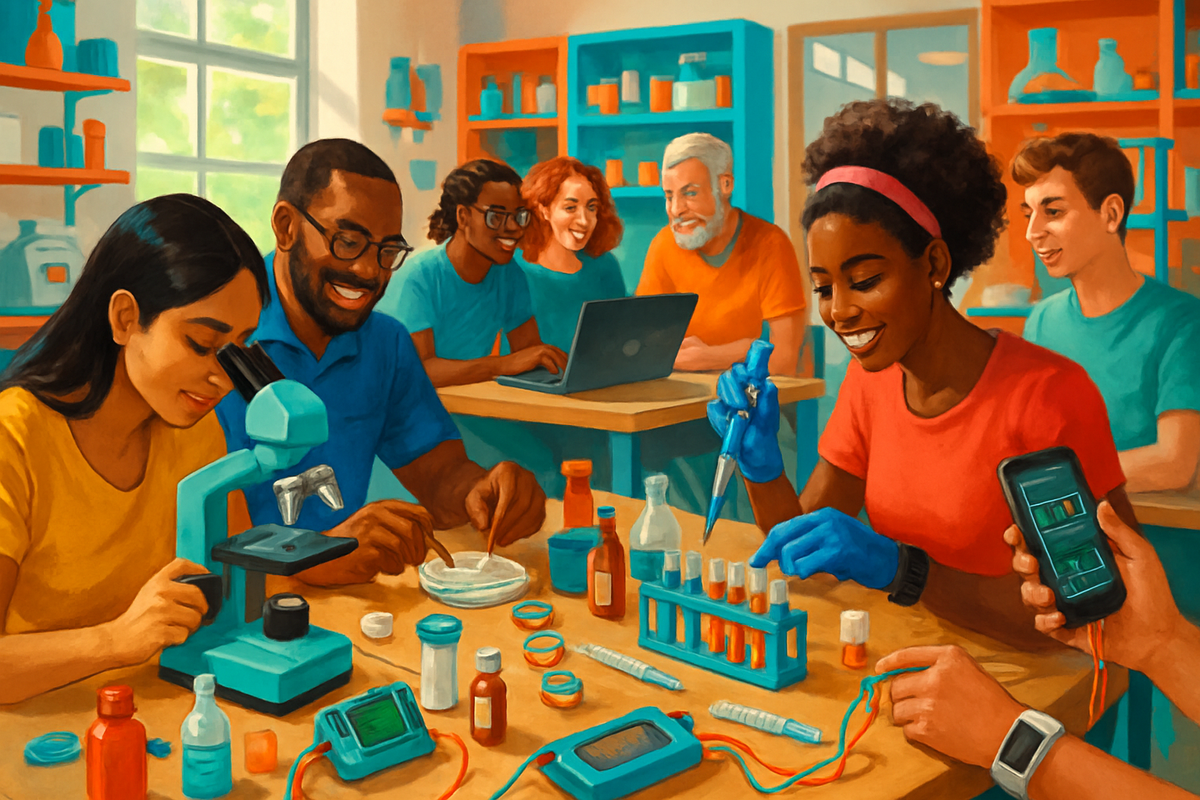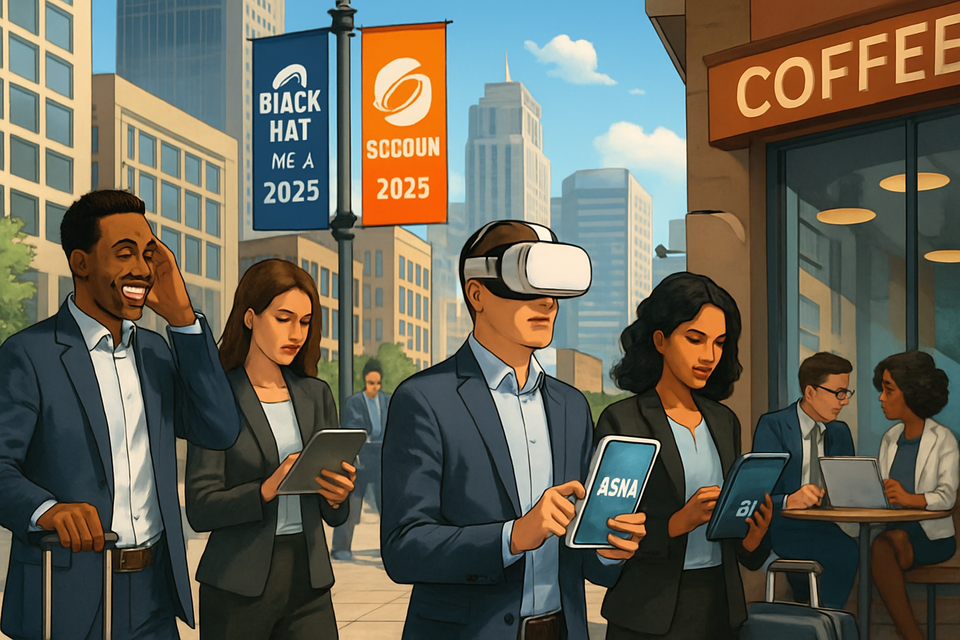The DIY Biohacker’s Revolution: How Citizen Science and Community Labs Are Democratizing Human Enhancement
Join the DIY biohacker revolution transforming kitchens into cutting-edge labs. Discover how citizen scientists are redefining innovation in health and genetics with open-source tech and community support—no PhD required.

Citizen Science | Biohacking | August 11, 2025
“The most exciting breakthroughs of the 2020s aren’t happening in glossy labs—they’re happening in garages, kitchens, and community spaces where anyone with curiosity (and a pipette) can join the revolution.”
Welcome to the Age of the Garage Genome
Forget billionaire-funded longevity clinics and secretive Silicon Valley bunkers. In 2025, the most radical advances in human enhancement are bubbling up from kitchen counters, neighborhood makerspaces, and a fast-growing constellation of community biology labs. DIY biohackers—citizen scientists, self-quantifiers, and wellness tinkerers—are rewriting the rules of who gets to innovate in health, genetics, and human optimization.
The Rise of the DIY Biohacker: Who Are They?
They’re grad students and retirees, coders and artists, parents and high schoolers. What unites them isn’t a job title but a mindset: Why wait for permission to optimize your biology? Armed with open-source protocols, affordable hardware, and global online communities, these pioneers are:
- Editing yeast genomes with CRISPR in their kitchens
- Building custom glucose monitors or sleep trackers from Raspberry Pi kits
- Launching self-experiments in nutrition, cognition, and aging
- Collaborating on biohacking projects in hundreds of community labs worldwide
It’s not just a hobby—it’s a movement. And it’s growing faster than a bacterial colony on sugar water.
Community Labs: The New Frontier of Grassroots Innovation
Remember when science was a private club with a hefty membership fee? Not anymore. Community biology labs like BioCurious, Genspace, and L.A. Biohackers have opened their doors to anyone hungry to learn—and hack—biology.
- Workshops on everything from gene editing to DIY fermentation
- Open benches for group projects, from building low-cost PCR machines to mapping the local microbiome
- Mentorship from experienced scientists and seasoned biohackers
- Community science projects that let you contribute to real research—no PhD required
“Biohacking spaces have seen participation grow by 50% in U.S. cities over the past five years, and there are now over 200 labs worldwide.” — Market.us Media, 2025
Open-Source Tech: Wearables, Biomarkers, and the Quantified Self
Why settle for commercial gadgets when you can build your own? The open-source hardware movement is fueling a wave of DIY wearables and biomarker trackers:
- Home-built glucose monitors for real-time metabolic feedback
- Open-source sleep and HRV trackers (because who doesn’t want to know if their dreams are optimized?)
- At-home microbiome kits and citizen-led gut health experiments
- CRISPR kits for safe, supervised genome editing of yeast, plants, and bacteria
With online tutorials, global Slack channels, and “biohacker-in-residence” programs, even the least tech-savvy among us can join the party.
Genetic Tinkering in Your Pajamas: The Rise of Kitchen CRISPR
“Kitchen CRISPR” isn’t just a catchy phrase—it’s a global phenomenon. Thanks to affordable kits and community lab support, non-scientists are now learning to:
- Modify yeast to brew custom probiotics or vitamins
- Edit plant genes for homegrown nutrition experiments
- Design bacteria that glow, clean up waste, or even sense toxins
Regulatory agencies (and your mom) may raise an eyebrow, but the DIY biology movement is increasingly focused on ethics, transparency, and safety. Community labs require all projects to pass safety reviews, and open-source guides stress responsible conduct. The future? Think “neighborhood science fair,” but the volcano erupts with glowing bacteria.
Citizen Science: Real Research, Real Impact
The lines between amateur and professional science are blurring. Citizen science projects now collect and analyze data rivaling academic labs. In 2025, you can:
- Contribute your microbiome or genetic data (anonymously!) to global longevity studies
- Join open clinical trials for new supplements, nootropics, or metabolic interventions
- Help track public health trends with wearable data—sometimes in real time
- Co-author published studies with scientists you met on Discord (yes, really!)
“Over 100,000 people have participated in citizen science biohacking projects worldwide—many for the sheer joy of learning and contributing.”
Regulatory and Ethical Frontiers: The Wild, Wild (Wellness) West?
Is all this freedom a good thing? Mostly, yes—but it’s complicated. As DIY biohacking explodes, so do the questions:
- Safety: How do we ensure home experiments don’t go off the rails?
- Privacy: Who owns your genetic and health data—and who profits from it?
- Equity: Will democratized science close the gap—or create new divides?
- Regulation: Can government keep up with kitchen innovation?
The good news? The DIY community is self-organizing, publishing open safety protocols, and advocating for responsible, inclusive biohacking. Think of it as the world’s nerdiest town hall meeting—everyone gets a say, and the snacks are probably gluten-free and probiotic-rich.
How To Join the DIY Biohacker Revolution
Ready to roll up your sleeves (and maybe sterilize your countertops)? Here’s how to get started:
- Find a community lab near you (or join one online—many welcome remote members!)
- Take a free intro course in DIY biology or biohacking fundamentals
- Start with a simple project: grow a kombucha SCOBY, build a cheap sleep tracker, or sequence your own genes (with guidance!)
- Connect with global biohacker forums—ask questions, share your results, and maybe spark the next big breakthrough
Pro tip: Approach every experiment with curiosity, humility, and a dash of caution. Remember, the best biohackers are lifelong learners—mistakes are just data points on the road to discovery.
Why This Revolution Matters—And Why You Should Subscribe
“When science is open, accessible, and playful, everyone wins. The next health revolution won’t be televised—it’ll be live-streamed from your neighbor’s garage.”
If you’re fascinated by the intersection of science, tech, and personal empowerment, the DIY biohacker movement is your invitation to the future. From affordable genetic testing to open-source wearables, the tools of transformation are now in your hands—no lab coat required.
Want the latest breakthroughs, hands-on guides, and exclusive interviews with the world’s boldest biohackers? Subscribe to Funaix for free and become a Funaix Insider! Only subscribers can join the conversation in our comment section—your curiosity and questions are welcome. Subscribing is free, for now.
Written by the Funaix editorial team
August 11, 2025




